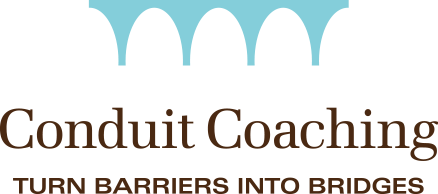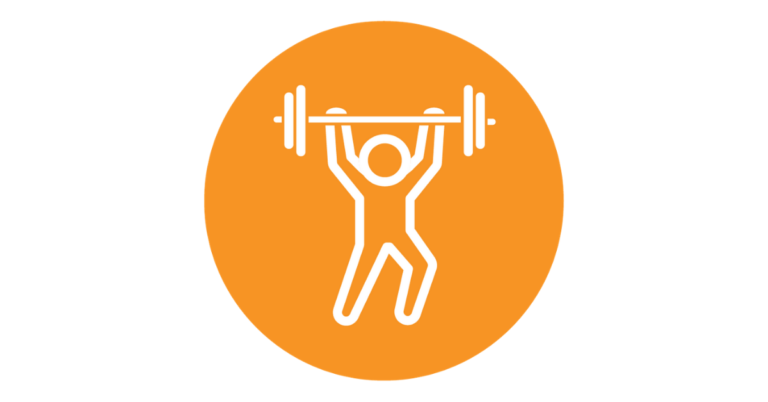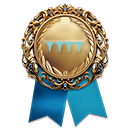Once upon a time, experts believed a thorough understanding of failure led to an equally deep understanding of excellence. Achieving success? It was all about fixing our weaknesses.
Well. Turns out that was kinda dumb.
A ton of research by the Gallup organization has since proven that “leading from strengths” is a better, and quicker, way to achieve goals. Note: These findings apply across professions.
It makes complete sense.
- Knowing what we’re good at means we know ourselves. It indicates self-awareness and Emotional Intelligence.
- Using our strengths brings enjoyment, ease, energy, and excellence.
- Knowing others’ strengths makes it easier to bring out the best in each other.
- Coming from a place of strength makes it easier for your organization to realize the significant and long-term impact you’re aiming for.
- And most importantly? Leaning on your talents is way more fun than pummeling yourself in an attempt to improve something you’re not very good at.
No time like the Present.
If ever there was a time to focus on strengths, I’m thinking it’s now.
With staffing shortages, you likely have more leaders new to their roles or your organization. Yeesh.
Increasing these newbies’ awareness of their strengths will increase their confidence, and teach them how to flex their strengths differently than when they contributed as individuals.
With burnout on the rise, more folks are focusing on well-being. They don’t want work to suck them dry (imagine that).
Focusing on strengths can fill up and engage them, making it more likely they’ll do a great job and stay.
Spotting Strengths in Yourself & Others. How to do it..
Donald Clifton, father of strengths-based psychology and grandfather of positive psychology, defines strengths as innate, natural abilities. Because we’ve developed and practiced using these skills, along with our knowledge base, Clifton says, we can productively apply them to consistently provide near-perfect performance in a specific task.
So strengths are about HOW and WHY we can instinctively achieve things, versus WHAT we achieve.
Except identifying our strengths can be tricky because the human brain’s deep-seated negativity bias emphasizes areas we think need improvement instead. Hmmm.
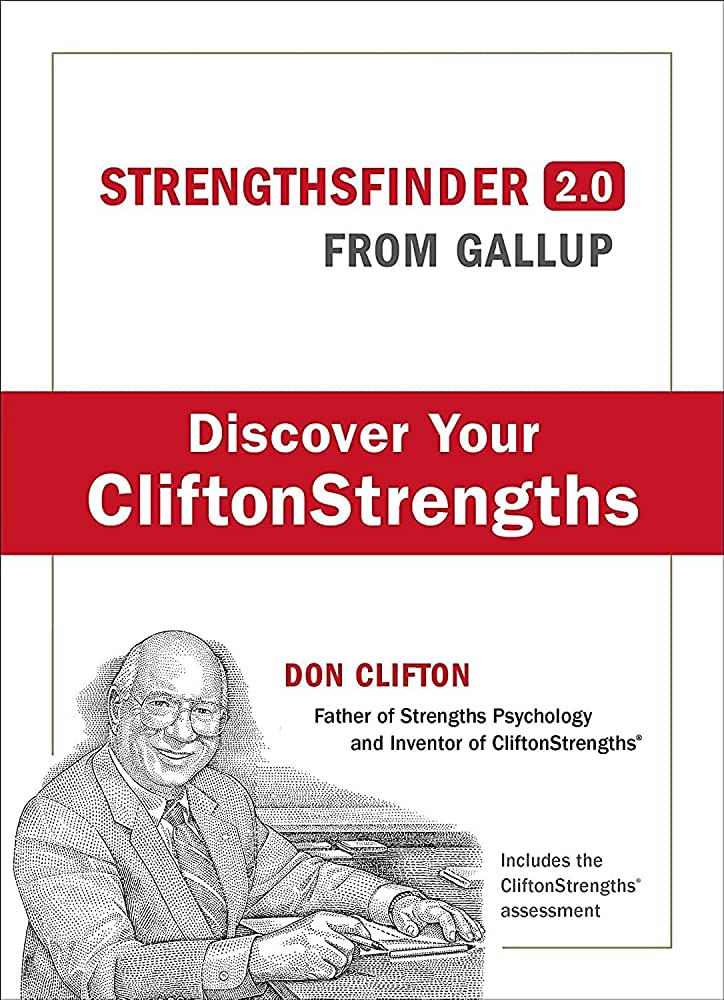 Some ideas to overcome that bias and discover your strengths:
Some ideas to overcome that bias and discover your strengths:
* Consider your quirks, your idiosyncrasies—whether it’s racing your GPS, colour-coding your closet, chatting up people in elevators, or figuring out the movie plot before anybody else. How do you do these things? And why?
* Use one of the many available tools designed to identify strengths, including the Clifton StrengthsFinder (my favourite) or the free VIA Survey.
* Do the lovely Reflected Best Self activity.
But what about weaknesses?
I want to be clear. Focusing on your strengths is not about ignoring weaknesses.
Absolutely we need to recognise our not-so-great behaviours and take responsibility for their impact.
But how?
The not-always-intuitive-but-still-accurate-truth gives us a clue . . .
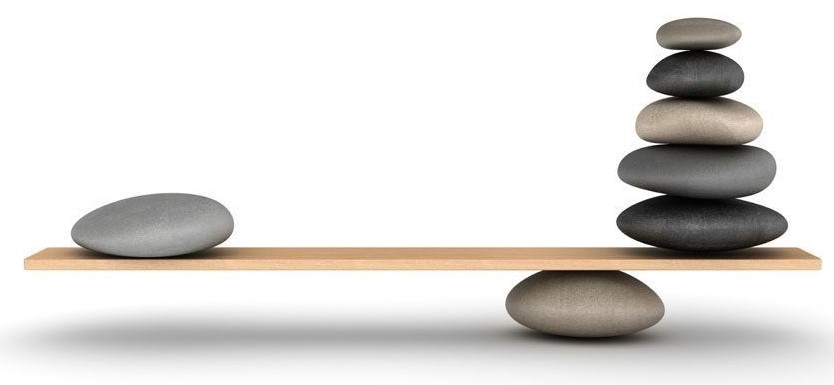 When we leverage our natural talents and strengths, we’re better equipped to manage and compensate for our weaknesses.
When we leverage our natural talents and strengths, we’re better equipped to manage and compensate for our weaknesses.
Some examples of how that can look from recent Strengths Spotlight programs.
ABC Organization had a committee with a reputation for being cranky and contentious. Nobody liked working with these folks. Even the CEO was a little afraid of them. But one leader, Sandeep, enjoyed this group. He was even able to help them reach consensus on sticky issues and move significant projects forward.
- Sandeep’s weakness? He avoided conflict.
- His strength? Harmony. Sandeep was a natural common-ground-and-agreement seeking missile.
Another leader, Naomi, was terrific at seeing a path for completing difficult projects quickly, but not so great at confidently communicating that vision, especially to groups.
When she used her strength of connecting her ideas to different stakeholders’ priorities? Voila . . . buy-in was possible.
Note: An irony I’ve noticed is that weaknesses often come from overplaying our strengths, like being responsible which is a wonderful strength . . . not so wonderful when it means you can’t say no or set boundaries, or insist on unreasonable perfectionist standards. Ugh. >>> That’s when a little self-care that isn’t selfish helps.
It takes a Village.
But wait. There’s more! Consider what’s possible when everyone on your team knows their own and each others’ strengths.
Reduced conflict. One CEO had an uncanny ability to discern blueprints for the future by understanding the past, a strength that helped his organization thrive during COVID.
Except he asked so many questions, he stirred defensiveness in his senior leaders.
In a Strengths Spotlight with CliftonStrengths program we led for his team, there was a chorus of “ooooohs” as people realized the constructive reason behind his quizzing.
Optimized individual and team performance. Another leader we worked with was amazing at generating ideas and flying by the seat of her pants. Follow-through? Not so much.
But. Team creativity and productivity flowed when she partnered with colleagues who struggled with brainstorming but excelled at research and implementation.
Team compatibility and collaboration aren’t randomly discovered.
They don’t magically appear.
They’re created with awareness and intentional effort.
A common language. A world of possibility.
Learning what makes ourselves and others tick is fun. And effective.
When people work in roles that leverage their strengths . . .
- They’re more innovative and productive.
- They’re more likely to be engaged, energized, happy at work.
- And they tend to stay with the organization.
With strengths as a common language, and increased awareness of where and how we all excel, we can appreciate each other more.
Even better, we start seeing (and believing) what we can make possible . . . together.
Especially for Leaders & Teams in Seniors Care.
The Seniors Care sector struggles with attracting and retaining people. Helping your leaders and teams become aware of their strengths and use those strengths as they do meaningful work can help.
Happy employees who get to bring the best of themselves to your residents and their families provide better care, will stay, and will tell others about the great place they get to work at. That’s probably why Strengths-Based Nursing Leadership was a thing before COVID, and now even more so.
Leading from our strengths and supporting others to do the same is a good idea. But you don’t need one more thing to do. Conduit Coaching can help.
Our marvelous Strengths Spotlight with CliftonStrengths program is a 6-week experiential program that helps you and your team members identify strengths and gain actionable insights that leverage those strengths, resulting in teams that move your organization’s mission forward.
